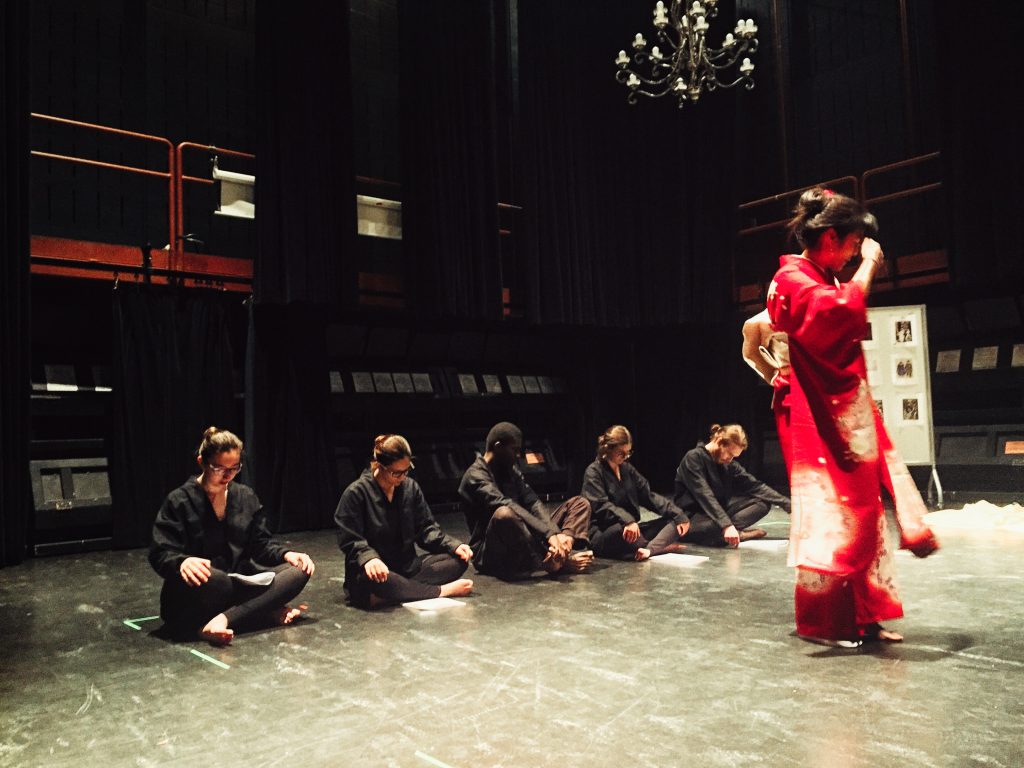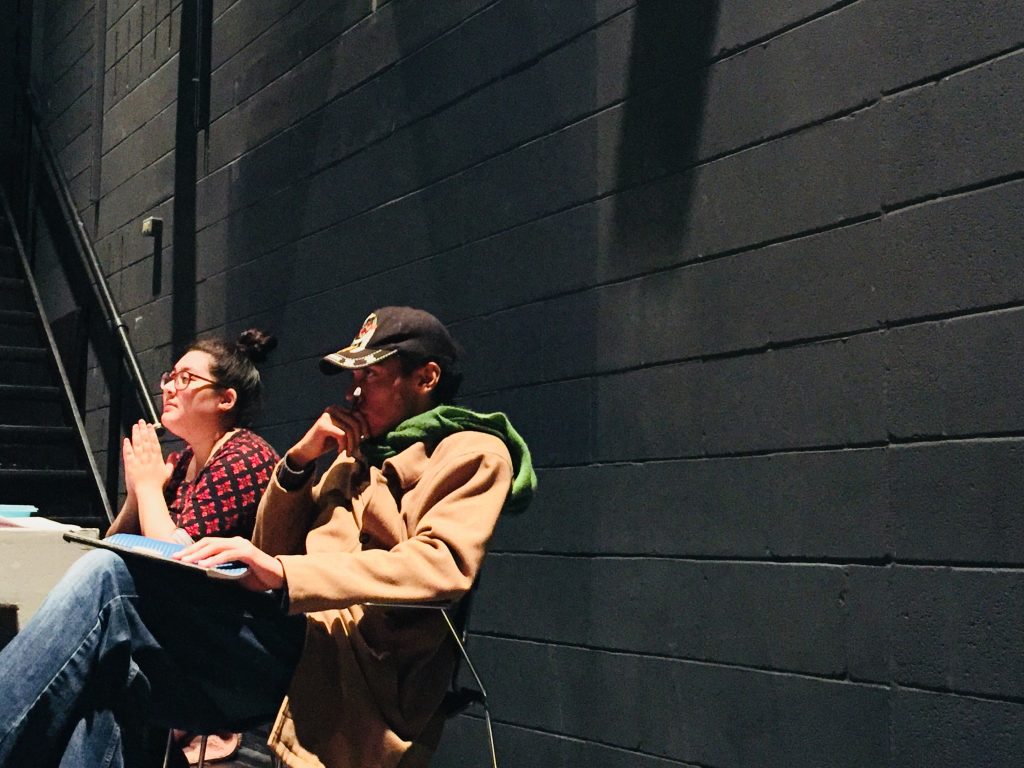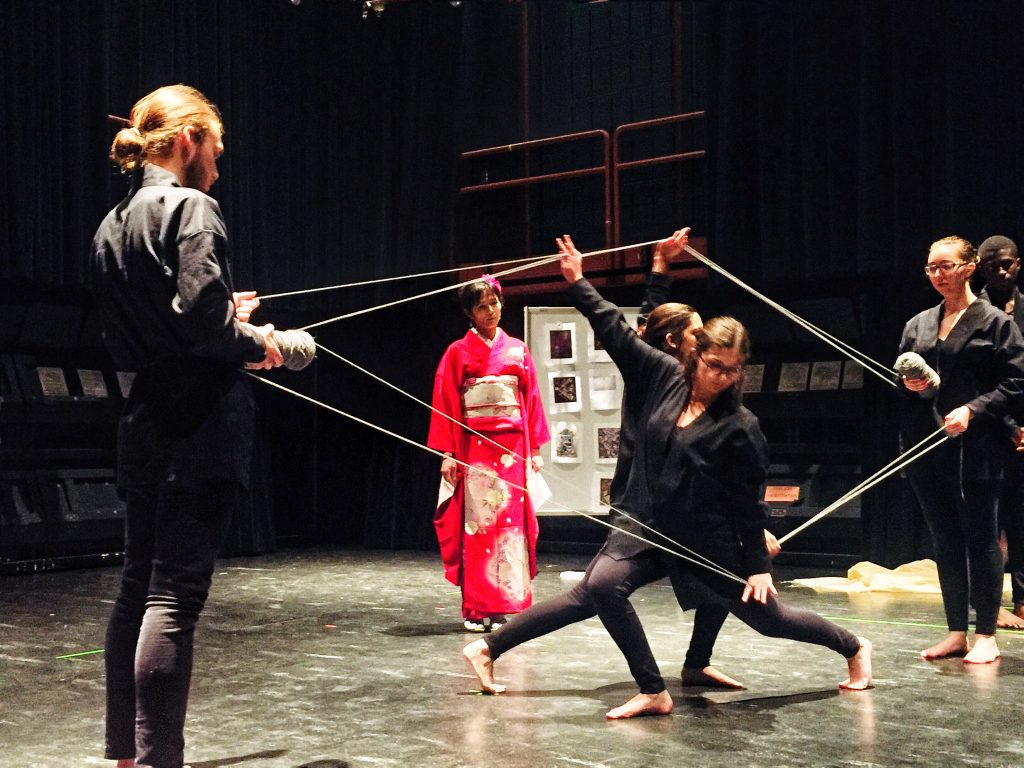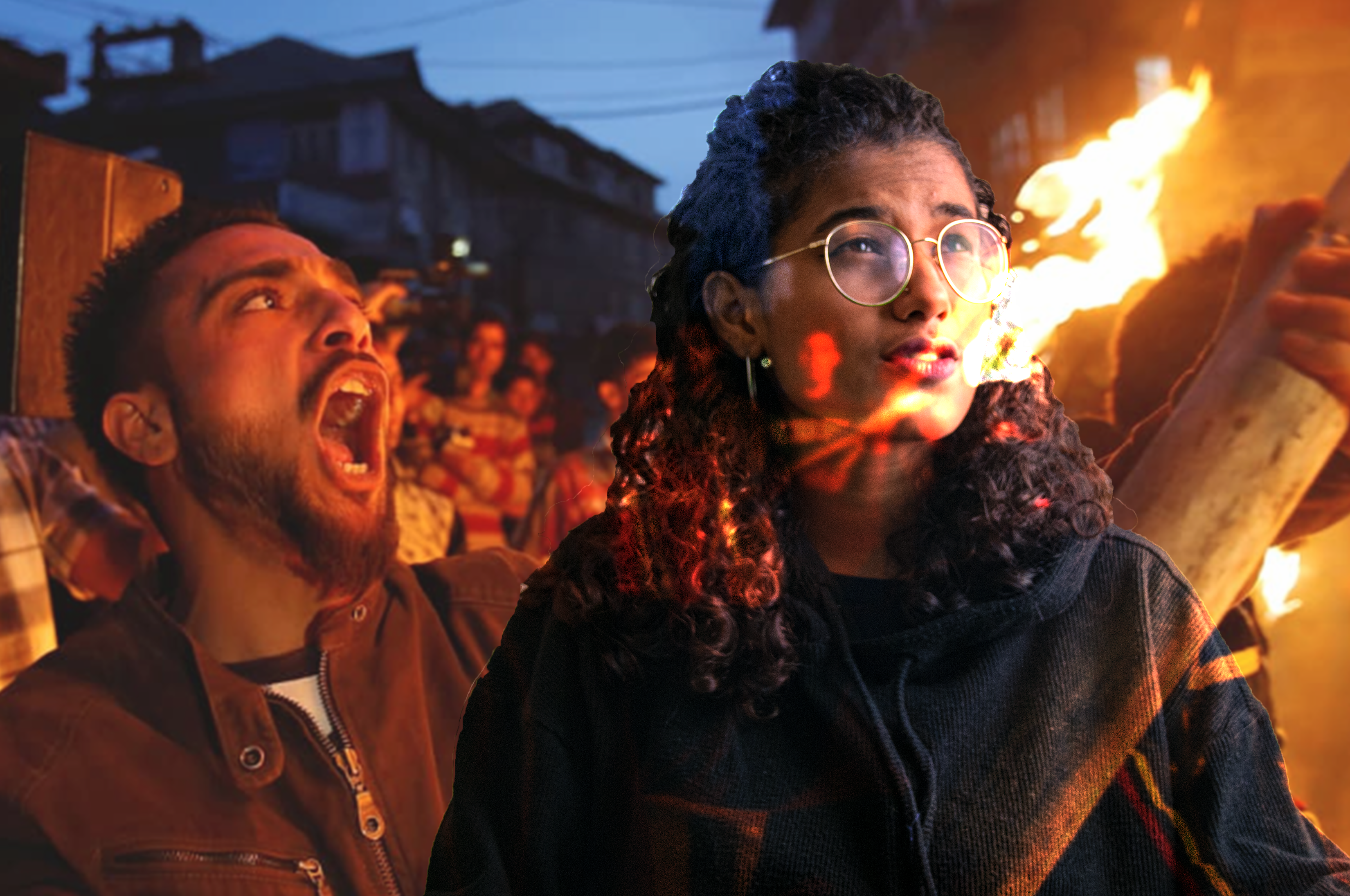Japanese, Canadian, Japanese-Canadian: Kansha and Discovering Your Roots
What does it mean to be second, or third, generation? In a nation of immigrants, it’s easy to feel not Canadian enough, and if your heritage comes from another country, it’s just as easy to feel disconnected from one’s roots. And when it comes to cultural garments, many wonder if they deserve to wear their heritage like their predecessors did.
It’s a question that resonates for Canadians of all sorts; whether Indigenous or immigrant, it’s hard to shake the feeling that we are less than our parents and grandparents. A new applied theatre performance by University of Victoria theatre major Hannah Mariko Bell explores this question with nuance and honesty.
Hilary Williams, Samara Stanleigh, Kaelan Bain, Chantelle Potier, Carter Gulseth, and Tamao Nakashima rehearse Kansha, a new applied theatre performance from the University of Victoria’s Phoenix Theatre
Kansha discovers the convergence of personal identity and ancestral roots in a dynamic exploration of Japanese culture. Kansha asks what it means to be Japanese-Canadian by following one woman’s first foray into wearing a kimono.
Mariko, played by Tamao Nakashima, feels hesitant to wear a cultural piece of clothing to a festival because she does not feel Japanese enough. On her way to take off the kimono, a chorus of spirits converge on Mariko to teach her the history of the garment. Through song and dance, reminiscent of traditional Japanese theatrical techniques, the ensemble shows Mariko her history and why she will always be allowed to express her culture.
“Kansha means appreciation,” said Bell. “And applied theatre is using theatre to teach and to connect with the community. We have a huge Japanese community here in Victoria…I wanted to give them the opportunity to have their voices heard.”
It’s no coincidence that Kansha arose out of UVic’s Phoenix Theatre. Lauded as one of the best applied theatre programs in the nation, UVic’s applied program has helped Bell grow as an artist and realize the world outside the university: “[The program] is open and welcoming. There’s no pretense to it.”
Bell also found financial support for her production from the university at large, through funding from the Jamie Cassels Undergraduate Research Awards. But that’s not the only grant that Kansha has received. The National Association of Japanese Canadians lent their generous support through the Young Leaders Fund, which aims to empower the next generation of Japanese-Canadian youth by funding their cultural projects and initiatives.
Creator/facilitator Hannah Mariko Bell and dramaturge Tallas Munro at Sunday’s rehearsal
Even though Kansha focuses on the Japanese-Canadian experience, universality is key. The accessibility of the show is important to everyone in the cast and creative team; which is why Bell chose to include all Japanese language words in the program and involve a diverse spread of Phoenix students and community members, on stage and in the creative team.
An immediate standout is the inclusion of Victorian drumming group Uminari Taiko, whose sharp rhythms accompany Kansha’s concise dance sequences. Sound Designer Olivia Wheeler reached out to the drumming group and brought them into the Phoenix Theatre to record their drumming for the show. It’s this kind of Victoria-wide involvement that Bell aims to incorporate: “The community has all the answers. And this is my love letter to the Japanese community.” Under Bell’s steady guidance, Kansha shows that, regardless of your cultural background, it’s never too late to discover your heritage.
Kansha returns for a special encore performance on December 5th at 12:45 pm, in the Barbara MacIntyre Studio at the Phoenix Theatre. For more information, find Kansha on Facebook.







We are so proud of Hannah. We know how hard she has worked to breathe life and spirit into Kansha. Her grandmother, to whom she is dedicating the performance, would have been be so happy and touched to see this wonderful performance. Unfortunately we can’t be there but hope to see Kansha on video later. Hugs to our dear Niece.
So very proud of Tallas for having a love for diverse cultures and people. I wish I could attend this performance, hoping to see it on video. Congratulations on a beautiful production.
Dear Hannah, as you know in this current recognitions of the Injustices of the internment of the Japanese, through the bus tours to the internment camps, the signage events and the U Vic’s Landscape of in Injustice program, your play has the potential of becoming an important part of the ” healing ” process of being proud of our Japanese heritage and recognizing the hardships our Grandparents endured in order to make our Lives so much better. And because of their sacrifices I am eternally grateful.
By way of introduction my Mom Florence Kaminishi was Meiko Kobayashi (Kawano) younger sister. Congratulations on your Creation!